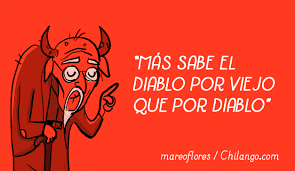Four Articles and a Poem
As customary, I post four articles that I found significant and a
poem. Our lives are enriched by seeing better. Each week, one article comes from the world of photography, a discipline that is about seeing.
Another article comes from the world of technology, hence seeing
something of the future. Another article takes up an aspect of our
life together, seeing more clearly the other. Another article refers to faith, seeing the unseen. Finally, the weekly post
concludes with a poem, because poetry is about seeing words whose
arrangement allows us to see anew.
This week, the four articles urge an appropriate space for science in our concepts, in our politics, in our faith, and in our gazing. Poetry reminds us, however, of a deeper contemplation of the mysteries that surround us, mysteries that bring us to "perfect silence."
When I Heard the Learn’d Astronomer
By Walt Whitman
When I heard the learn’d astronomer,
When the proofs, the figures, were ranged in columns before me,
When I was shown the charts and diagrams, to add, divide, and measure them,
When I sitting heard the astronomer where he lectured with much applause in the lecture-room,
How soon unaccountable I became tired and sick,
Till rising and gliding out I wander’d off by myself,
In the mystical moist night-air, and from time to time,
Look’d up in perfect silence at the stars.
This week, the four articles urge an appropriate space for science in our concepts, in our politics, in our faith, and in our gazing. Poetry reminds us, however, of a deeper contemplation of the mysteries that surround us, mysteries that bring us to "perfect silence."
- If the Moon were only 1 Pixel. This was another big week in science. In addition to seismic research suggesting an enormous threat to the Pacific Northwest, NASA sent a probe on a nine-year journey, covering 3 billion miles flying by Pluto and its moons. The previous link, developed by Josh Worth, posits in pictorial fashion the size of our solar system. Spend a little time to conceptualize what "space" might really mean.
- The New Deal. While I wish that it was considered through a lens of science, the negotiations with Iran and the nuclear deal between that nation and major nations has largely devolved into political theater. Presidential candidates from the right have postured against it. Hours after its conclusion many talking heads offered opinions. Frankly, we should have little regard for comments from politicians who have neither read the document nor have the scientific background to understand the same document. John Lawrence, former chief of staff to Nancy Pelosi, with 38 years of experience on Capital Hill, offers insight on the political process and why the deal is important. Here is an early breakdown of components of the deal.
- Can Islam Come Back to the Light of Science? Much of Aristotle's writing comes to us via Islamic culture and the Arabic language. Our number system, dubbed "Arabic numerals," have proven a lot more useful, outside of the Super Bowl, than the Roman numeral system. Islam, between the year 750 and 1258, was the font of science and learning, while Europe stumbled. While Christianity has had and continues to have issues with science, just ask Galileo Galilei, Catholicism professes that faith and reason go hand-in-hand. Pope Francis' Laudato Si' receives astonishing praise from folks with very different perspectives. (Worth noting is Naomi Klein's report in The New Yorker.) Ross Pomeroy tackles the question of Islam and science in the article highlighted here. Richard Ostling then suggests asking Islamic scholars deeper questions about faith and science in his post on the Get Religion website.
- NASA's Three-Billion-Mile Journey to Pluto Reaches Historic Encounter. This week's photography article links us to images from the New Horions spacecraft from NASA. These are wonderful photos of the dwarf planet and the team's reaction to the images.
When I Heard the Learn’d Astronomer
By Walt Whitman
When I heard the learn’d astronomer,
When the proofs, the figures, were ranged in columns before me,
When I was shown the charts and diagrams, to add, divide, and measure them,
When I sitting heard the astronomer where he lectured with much applause in the lecture-room,
How soon unaccountable I became tired and sick,
Till rising and gliding out I wander’d off by myself,
In the mystical moist night-air, and from time to time,
Look’d up in perfect silence at the stars.




Comments
Post a Comment